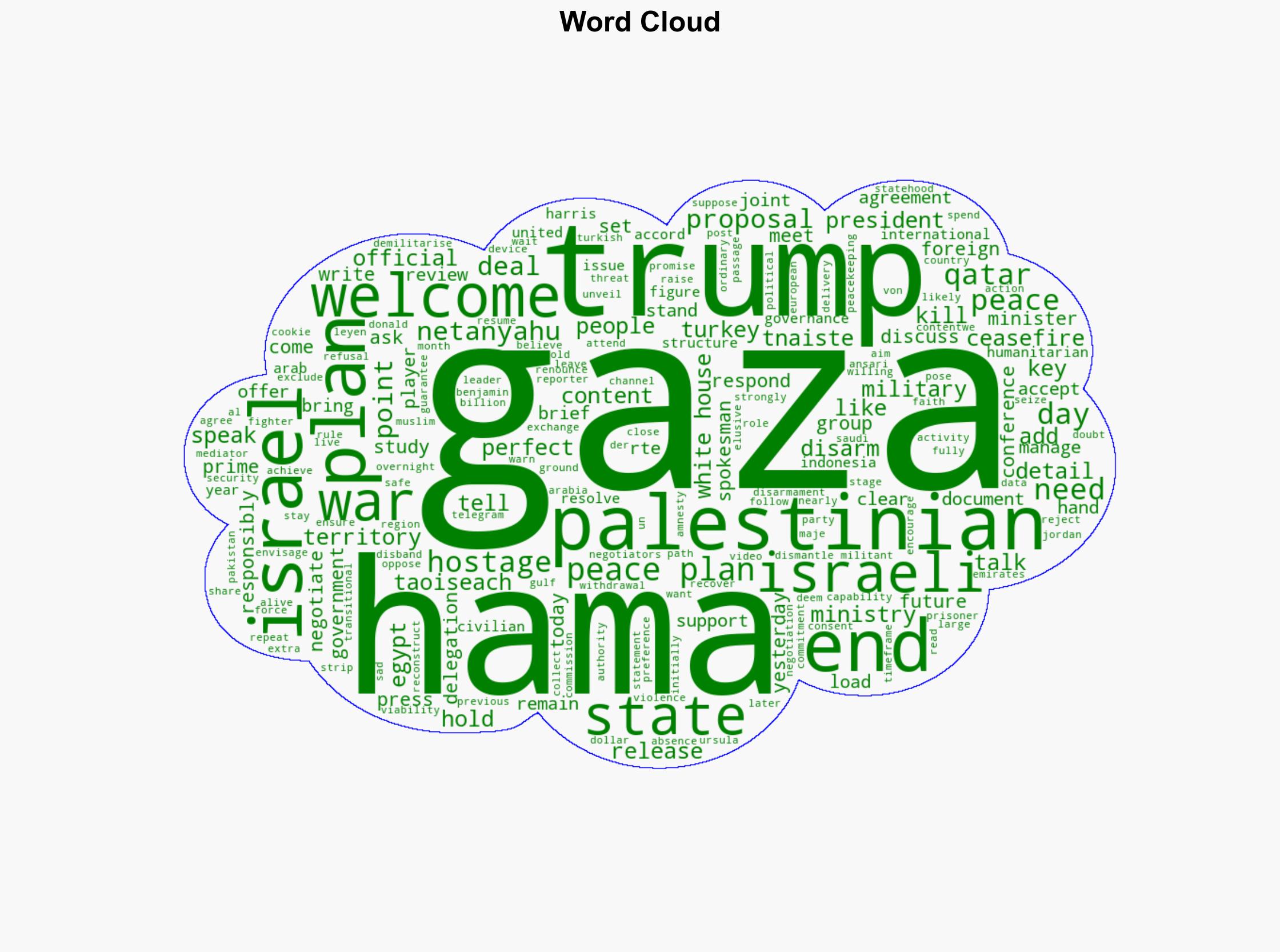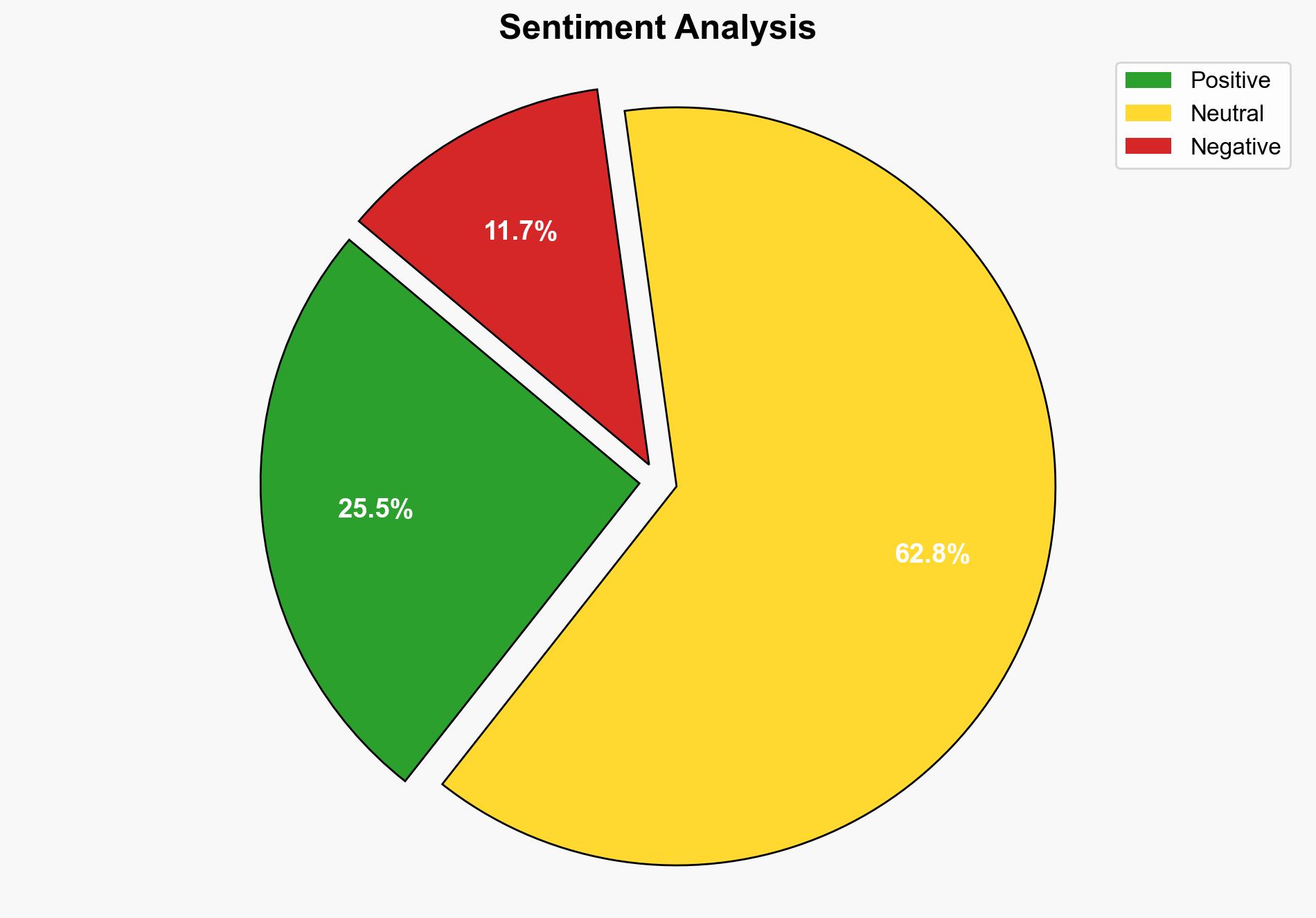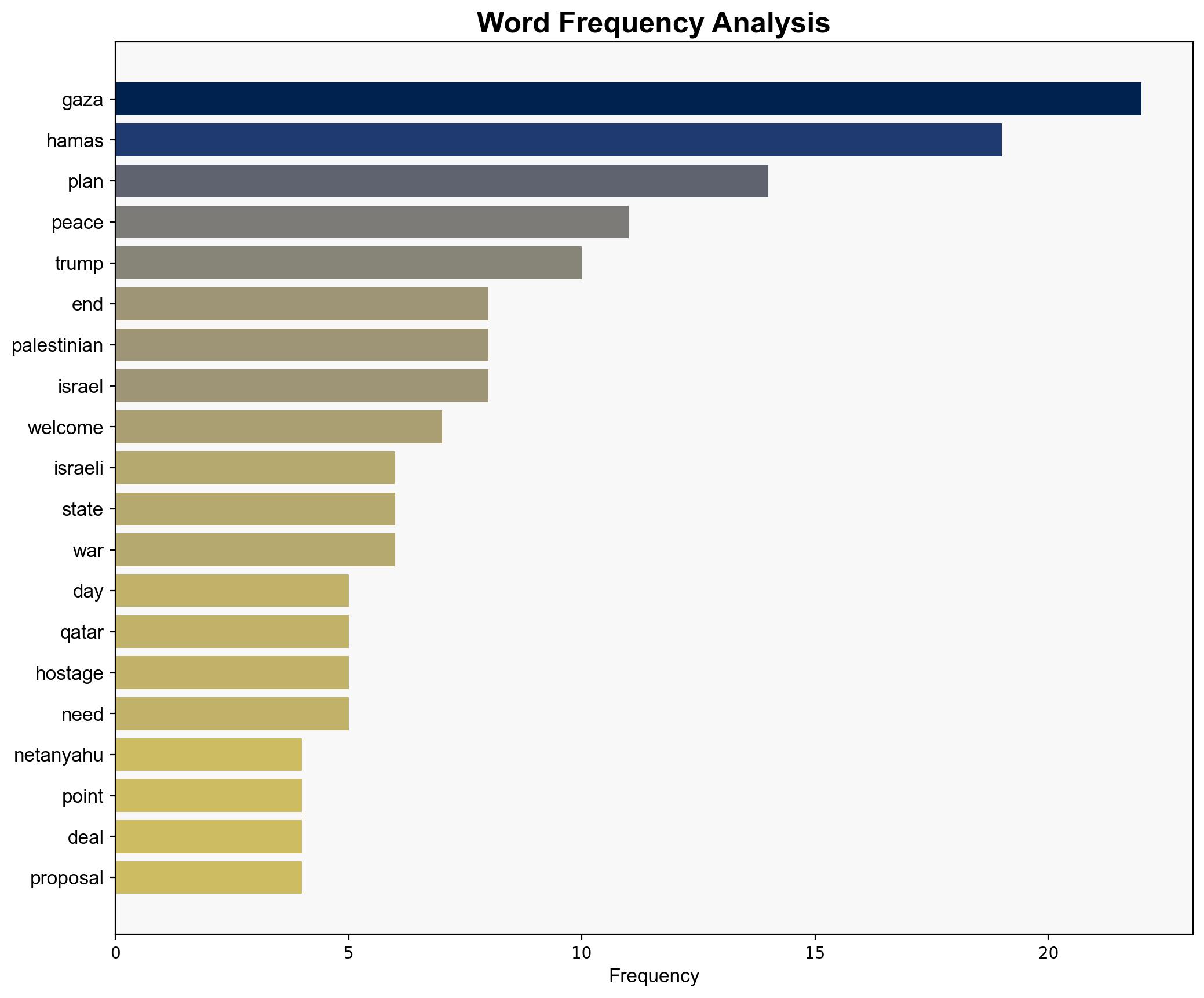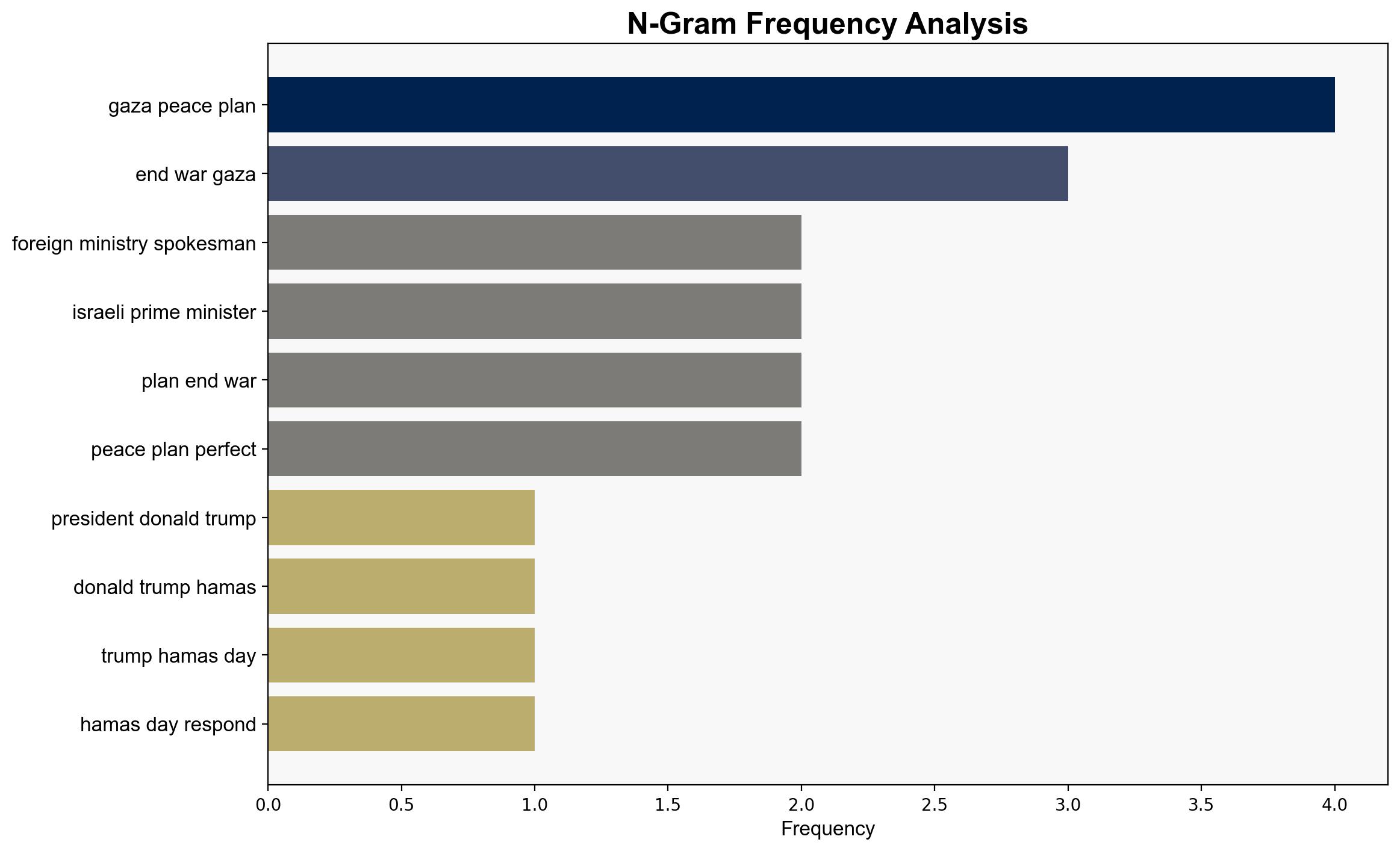Hamas says will consider Gaza peace plan in ‘good faith’ – RTE
Published on: 2025-09-30
Intelligence Report: Hamas says will consider Gaza peace plan in ‘good faith’ – RTE
1. BLUF (Bottom Line Up Front)
The most supported hypothesis is that Hamas is engaging in strategic posturing to buy time and leverage negotiations while maintaining its military capabilities. Confidence level: Moderate. Recommended action: Increase diplomatic engagement with regional stakeholders to pressure Hamas into genuine negotiations, while preparing contingency plans for potential escalation.
2. Competing Hypotheses
1. **Hamas is genuinely considering the peace plan in good faith**: This hypothesis suggests that Hamas is willing to disarm and engage in a peace process, motivated by the potential economic and political benefits outlined in the plan.
2. **Hamas is using the peace plan as a strategic delay tactic**: This hypothesis posits that Hamas is not sincere about disarmament or peace but is instead using the negotiations to gain time to regroup and strengthen its position.
Using ACH 2.0, the second hypothesis is better supported by historical patterns of Hamas’s behavior and its previous refusals to disarm. The group’s strategic interests in maintaining military capabilities and political influence in Gaza align with this interpretation.
3. Key Assumptions and Red Flags
– **Assumptions**: The assumption that Hamas would prioritize economic benefits over military capabilities is critical. The belief that regional stakeholders can effectively pressure Hamas is also assumed.
– **Red Flags**: The absence of explicit commitments from Hamas to disarm and the historical context of failed negotiations are significant red flags. The potential for deception is high, given the group’s strategic interests.
– **Blind Spots**: The potential influence of external actors like Iran on Hamas’s decision-making is not fully accounted for.
4. Implications and Strategic Risks
– **Geopolitical**: Failure to reach a genuine agreement could lead to renewed hostilities, destabilizing the region further.
– **Economic**: Continued conflict may deter investment and humanitarian aid, worsening Gaza’s humanitarian crisis.
– **Psychological**: Prolonged negotiations without tangible progress could erode public trust in diplomatic solutions.
– **Escalation Scenarios**: If negotiations fail, there is a risk of military escalation, potentially involving regional actors.
5. Recommendations and Outlook
- Enhance diplomatic efforts with key regional players like Egypt and Qatar to mediate and apply pressure on Hamas.
- Prepare for potential escalation by coordinating with Israeli and international forces for rapid response scenarios.
- Scenario Projections:
- Best Case: Successful disarmament and peace agreement leading to regional stability.
- Worst Case: Breakdown of talks leading to renewed conflict and regional instability.
- Most Likely: Protracted negotiations with intermittent violence and no immediate resolution.
6. Key Individuals and Entities
– Donald Trump
– Benjamin Netanyahu
– Majeed Al Ansari
– Hamas negotiators
– Qatari and Turkish delegations
7. Thematic Tags
national security threats, regional focus, counter-terrorism, geopolitical strategy





